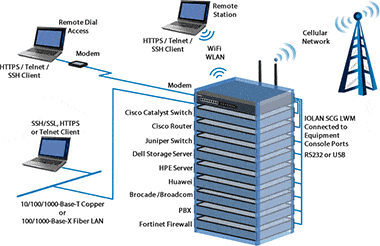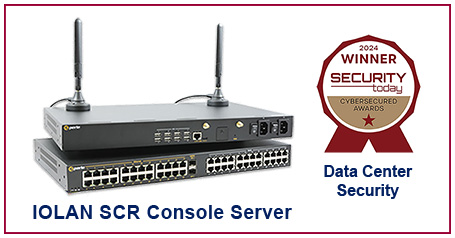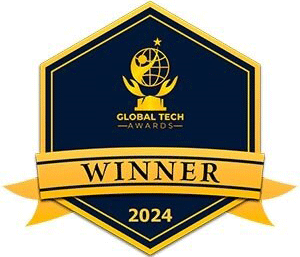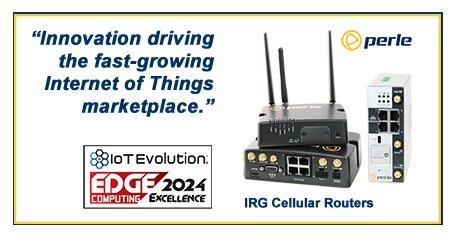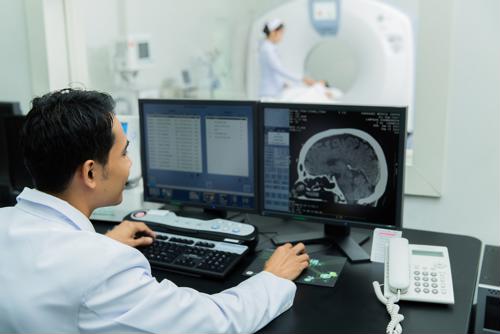
Push for connected health care technology continues
By Max BurkhlaterMay 30, 2017
Innovators across a variety of fields are exploring technology associated with the Internet of Things. However, few of these early adopters are as passionate about next-generation connected devices as those within the health care industry.
The market for IoT fixtures fit for clinics and hospitals is expected to grow to more than $41 billion by the end of the year, according to data from MarketsandMarkets. This figure is likely to surpass $158 billion within next five years, ballooning at a compound annual growth rate of over 30 percent. Why is there so much enthusiasm for this technology in the health care space? IoT devices can address significant clinical gaps that have lingered for decades, TechRepublic reported.
"Perhaps the most compelling area is healthcare," William Webb, CEO for the IoT firm Weightless SIG and a fellow at the Institute of Electrical and Electronics Engineers, told the publication. "From connected scales to smart pillboxes and body-worn monitors, these devices can bring real benefits especially for those with chronic conditions or something similar."
Indeed, IoT innovations are transforming the way medical professionals do their work, an evolution the has the potential to improve care outcomes for patients with varying medical needs. Several currents within the health care IoT arena are driving this development.
Mobile health management gains steam
Of all the IoT devices available on the market, wearables best represent encapsulate this unique technological shift. These items are most prominent in the consumer IoT space, where adoption hovers near 50 percent, according to metrics from PricewaterhouseCoopers published in Venture Beat.
Enterprises, on the other hand, are still testing wearables, searching for effective ways to integrate this cutting-edge technology into existing programs and workflows without compromising employee privacy or networks. The same process is unfolding within health care organizations around the globe, albeit with more impactful implications.
"Many clinics and hospitals are capable of actually prescribing wearable devices to those nursing chronic conditions."
As soon as devices like the Fit Bit hit the market, institutions in this sector began envisioning a future in which patients with chronic conditions might monitor and manage their health via wearables or other mobile devices. This use case has slowly gained traction as technology firms perfect earlier hardware and clinical stakeholders map out real-world adoption methodologies.
Now, many clinics and hospitals are capable of actually prescribing wearable devices to those nursing chronic conditions, Wired reported. The magazine cites the latest example of this long-developing sea change: The U.K. National Health Service's official embrace of mobile-ready self-care applications.
In February, the agency greenlit two new clinical portals for individuals suffering from chronic obstructive pulmonary disease and gestational diabetes, according to the New Scientist. The NHS also approved use of an application for doctors and nurses that calculates early warning scores using patient vital information. This mass product launch is the culmination of a 12-month clinical trial that ultimately resulted in a 17 percent decline in hospital admissions and 40 percent drop in general practitioner appointments.
"Patients are much more confident about managing themselves and are getting into trouble far less often," Lionel Tarassenko, an electrical engineer at the Oxford University Institute of Biomedical Engineering, told the New Scientist.
However, this kind of IoT application only represents the tip of the ice berg. Technology firms are dreaming up all sorts of new IoT wearables and mobile solutions for the health care space. From disposable patches that transmit electrocardiogram readings and internal monitors that keep tabs on digestive activity to web-enabled pill bottles and sleep quality sensors, the applications for this technology are nearly endless.
The emergence of artificial intelligence
Some innovators in the space are taking IoT technology to yet another level, fusing it with artificial intelligence software to prompt even more clinical gains. Entrepreneur Sami Inkinen is one of these thinkers, Newsweek reported. Inkinen, co-founder of the real estate listing site Trulia and a long-time athlete, launched Virta Health in 2014 with the help of a physician from the University of California, Davis and a scientist from Ohio State University.
The firm offers an application for diabetics that leverages A.I. software and user generated health data to pinpoint serious warning signs that might indicate a developing crisis. Doctors have access to the backend of the system, allowing them to passively monitor patients. Clinicians can also use the application to communicate with their charges and address risky lifestyle choices. The Virta Health portal works with both smartphones and wearable devices.
"Some innovators in the space are using IoT technology with artificial intelligence software."
Virta has been shown immensely effective in clinical trials. Almost 90 percent of the 262 Type 2 diabetes patients involved in a recent 10-week study of the platform were able to reduce or eliminate their insulin usage, according to the journal JMIR Diabetes.
"It felt like a duty to do this," Inkinen, who suffers from diabetes himself, told Newsweek. "Here is an epidemic of epic proportion, and nothing is working. We can combine science and technology to solve the problem at much lower cost and do it safely."
Developments like this, along with progress in larger-scale clinical contexts such as with IBM Watson Health, make A.I. a powerful force within both health care at large and the sector's burgeoning IoT space.
Health care organizations of all kinds continue to explore the transformative powers of IoT, developing clinical applications that could very well bolster care outcomes. As these institutions navigate such sea changes, Perle will be there to provide the essential connective infrastructure needed to operate IoT in clinics and hospitals.
Our Ethernet extenders and serial console servers currently power cutting-edge operations at care providers such as the Children's Hospital of Chicago and Tenet Health. Connect with us today to learn more about our work in the health care space.
